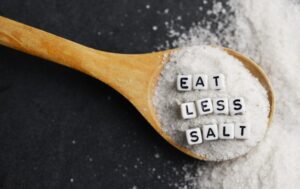ButSpeak.com
News which Matters.

A recent study has highlighted the detrimental effects of excess salt intake on skin health, revealing a significant correlation between high sodium consumption and the prevalence of eczema. Conducted by the University of California – San Francisco, the study found that higher sodium levels in the body may contribute to skin inflammation, making conditions like eczema more severe.
The comprehensive study, published in JAMA Dermatology, involved over 215,000 participants and discovered that each additional gram of sodium excreted in urine over 24 hours was linked to an 11% higher chance of an eczema diagnosis. Moreover, consuming just one extra gram of sodium daily increased the odds of having an active case of eczema by 22%.
Salt, while essential in small quantities, becomes harmful when consumed excessively. The study suggests that sodium is stored in the skin and may play a role in triggering skin inflammation. This means that managing dietary sodium could be a straightforward way for eczema patients to control their condition.
“Eczema flares can be challenging for patients to handle, especially when they are unpredictable,” said Katrina Abuabara, MD, associate professor of dermatology at UCSF and the study’s corresponding author. She emphasizes the importance of dietary adjustments in managing skin health.
How to Reduce Salt Consumption in Daily Life
By making these simple dietary changes, you can significantly reduce your salt intake and promote better skin health. Prioritize natural, unprocessed foods and be mindful of hidden sodium in everyday meals to keep your skin and overall health in optimal condition.